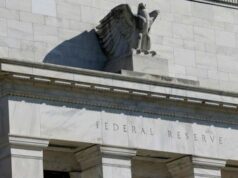Economy to withstand higher interest rates
By Melissa Luz T. Lopez
Senior Reporter
THE PHILIPPINE economy is robust enough to afford higher borrowing rates, the country’s central bank chief said, following dovish remarks on monetary policy.
“Economic growth remains solid enough to absorb some policy tightening if warranted,” BSP Governor Nestor A. Espenilla, Jr. said in a speech before the Money Market Association of the Philippines, Inc.
“Further, we observe that market mechanisms are working well to enable the economy to automatically adjust to fluid conditions efficiently and avoid serious imbalances, as well as overheating risks.”
The central bank kept benchmark rates within the 2.5-3.5% range at its meeting last Thursday, citing robust domestic economic activity and with inflation seen to remain within the 2-4% target band.
Analysts have been saying that the BSP should kick off tightening moves as soon as possible, with some pointing out that the monetary authority is currently behind the curve especially as the United States Federal Reserve has been raising rates since December 2015.
The BSP, for its part, has kept its monetary policy stance unchanged since September 2014 save for procedural cuts introduced in June 2016 for a shift to an interest rate corridor system.
Inflation hit a three-year peak at 3.9% in February, according to the Philippine Statistics Authority.
Noelan Arbis, economist at HSBC Global Research, said they are pricing in a rate hike from the BSP at its May 10 meeting despite “dovish” remarks from the central bank chief.
“We believe one rate hike is enough for the BSP based on our view that its current reaction function relies on inflation and inflation expectations and not on an overheating economy,” Mr. Arbis said in a report published over the weekend.
“This poses a risk that the BSP passes off this year’s high inflation as merely an effect of the recent tax reform, and so keeps policy rates unchanged.”
Central bank officials continue to insist that the Philippines does not need a fresh monetary stimulus, as growth is expected to continue above six percent for the coming years.
Gross domestic product expanded by 6.7% in 2017, one of the fastest in the region. This year, the government expects aggressive spending on public infrastructure — pegged at P1.068 trillion — to propel growth between 7-8%.
“We want our economy to grow, and it’s a policy call in terms of risks. Right now, there is no reason to move the policy rate because the data is not providing evidence of that,” Mr. Espenilla also said during a briefing on Thursday.
“The central bank doesn’t need to take away the punch bowl — it’s not yet the time. That’s part of our responsibility as part of the economic team that ensures that the country attains economic growth that is sustainable.”
However, Mr. Espenilla said that the BSP stands ready to raise loan rates should price increases turn more broad-based. He noted that the central bank is closely watching out for a shift in inflation expectations, which could prompt tightening moves as needed.



